*London plane
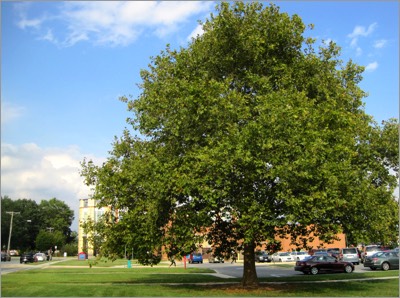
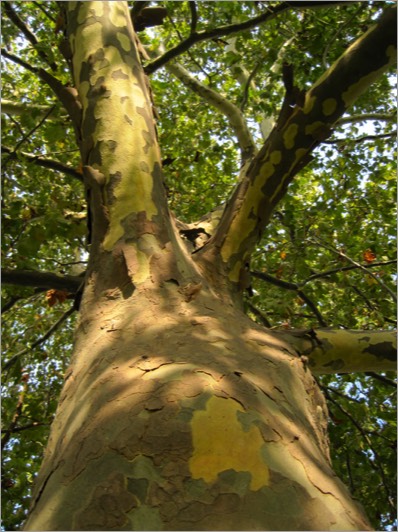
*Platanus ×acerifolia
LONDON PLANE
Platanaceae
Location: map coordinates L-34 (near north corner of E & H [Education & Humanities] Building), N 39°11'9'' W 75°32'25''
Planting history: presently unknown.
Description:
*Non-native species (not native to Delaware)
LONDON PLANE
Platanaceae
Location: map coordinates L-34 (near north corner of E & H [Education & Humanities] Building), N 39°11'9'' W 75°32'25''
Planting history: presently unknown.
Description:
- large deciduous tree
- etymology: Platanus from the Greek name for a species of plane tree (platanos) for the flat leaves; acerifolia = maple-leaved
- common name “plane tree” refers to broad flat leaf; “London” because it is widely planted in London and many other cities
- probably a hybrid of native American sycamore (Platanus occidentalis) and non-native oriental plane tree (Platanus orientalis)
- leaves alternate, 3-5 lobed, with large teeth; leaf base covers bud. Fall foliage yellow-brown
- monoecious (separate male and female flowers on same tree); flowers small, clustered in round unisexual balls
- fruits round, dangling; some in 2’s; fall apart at maturity
- bark very recognizable; falls off in large plates leaving a camouflage-like appearance; underbark yellowish-greenish
- resembles American sycamore (Platanus occidentalis), but in London plane some fruits are in 2’s, as well as 1’s (i.e. not all are single), inner bark color is more yellowish/greenish (less white), and much less susceptible to anthracnose in springtime
- very tolerant of urban conditions; commonly planted
*Non-native species (not native to Delaware)
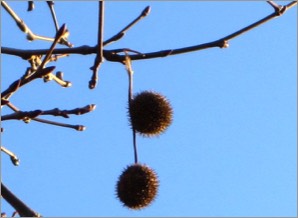
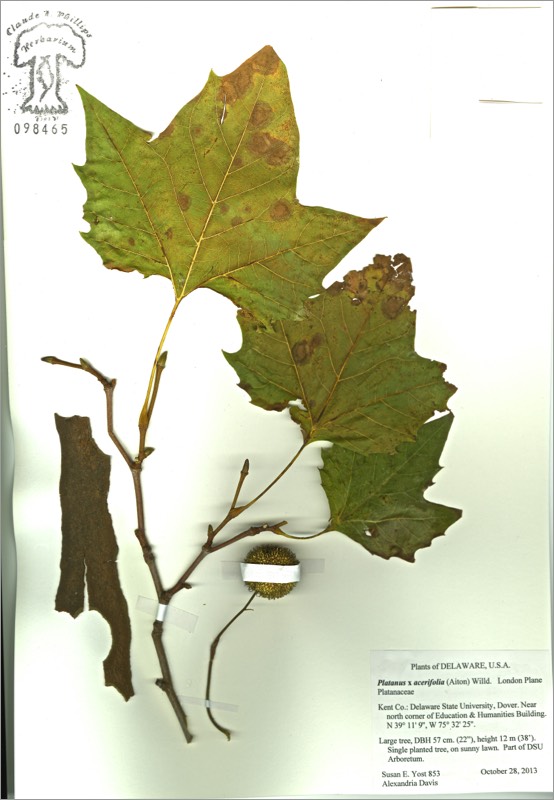
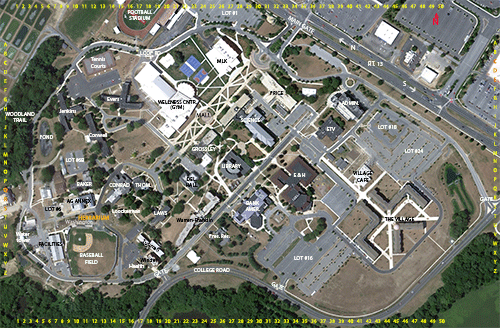
HIT REFRESH TO START LOCATION GRAPHIC